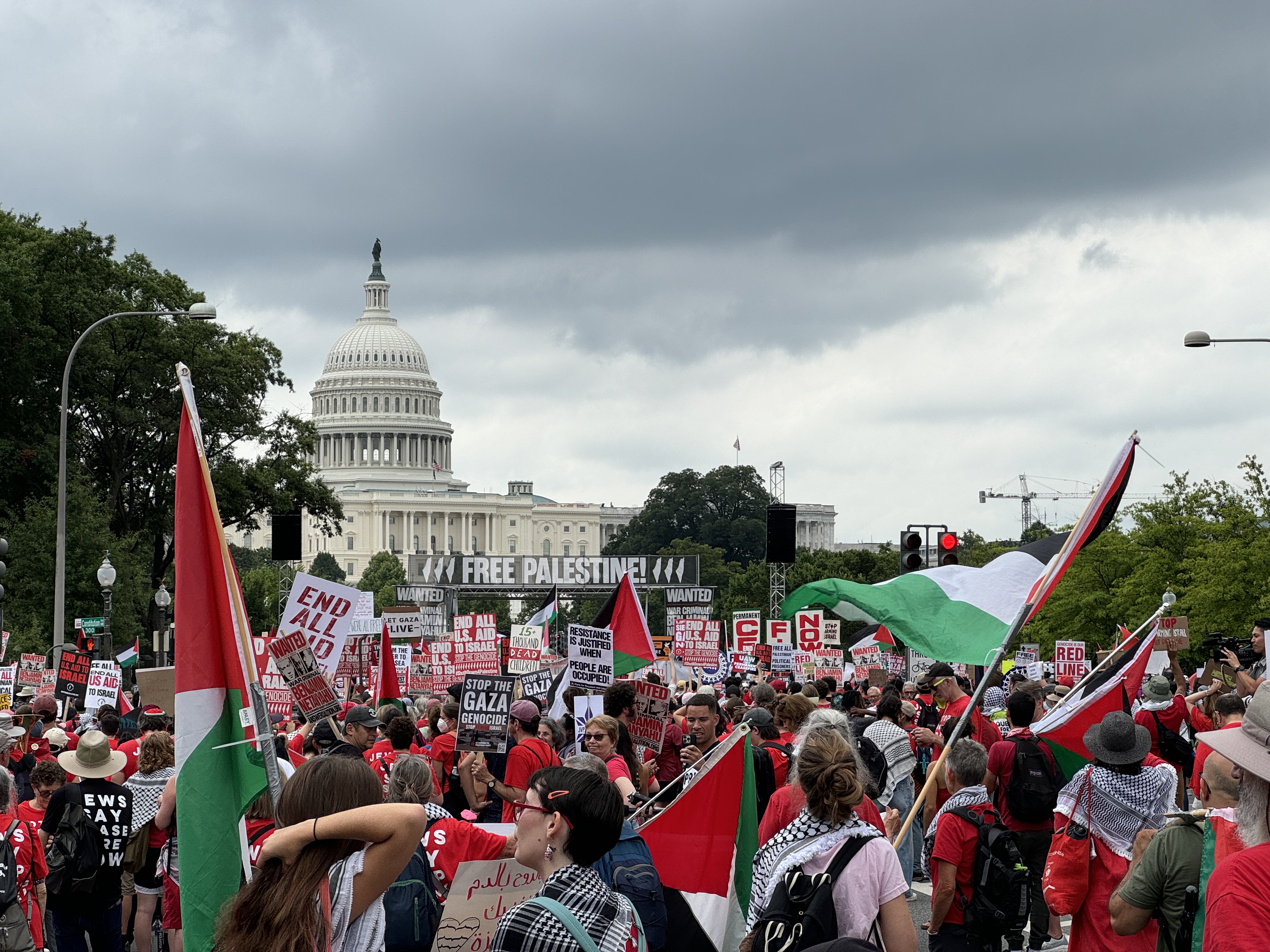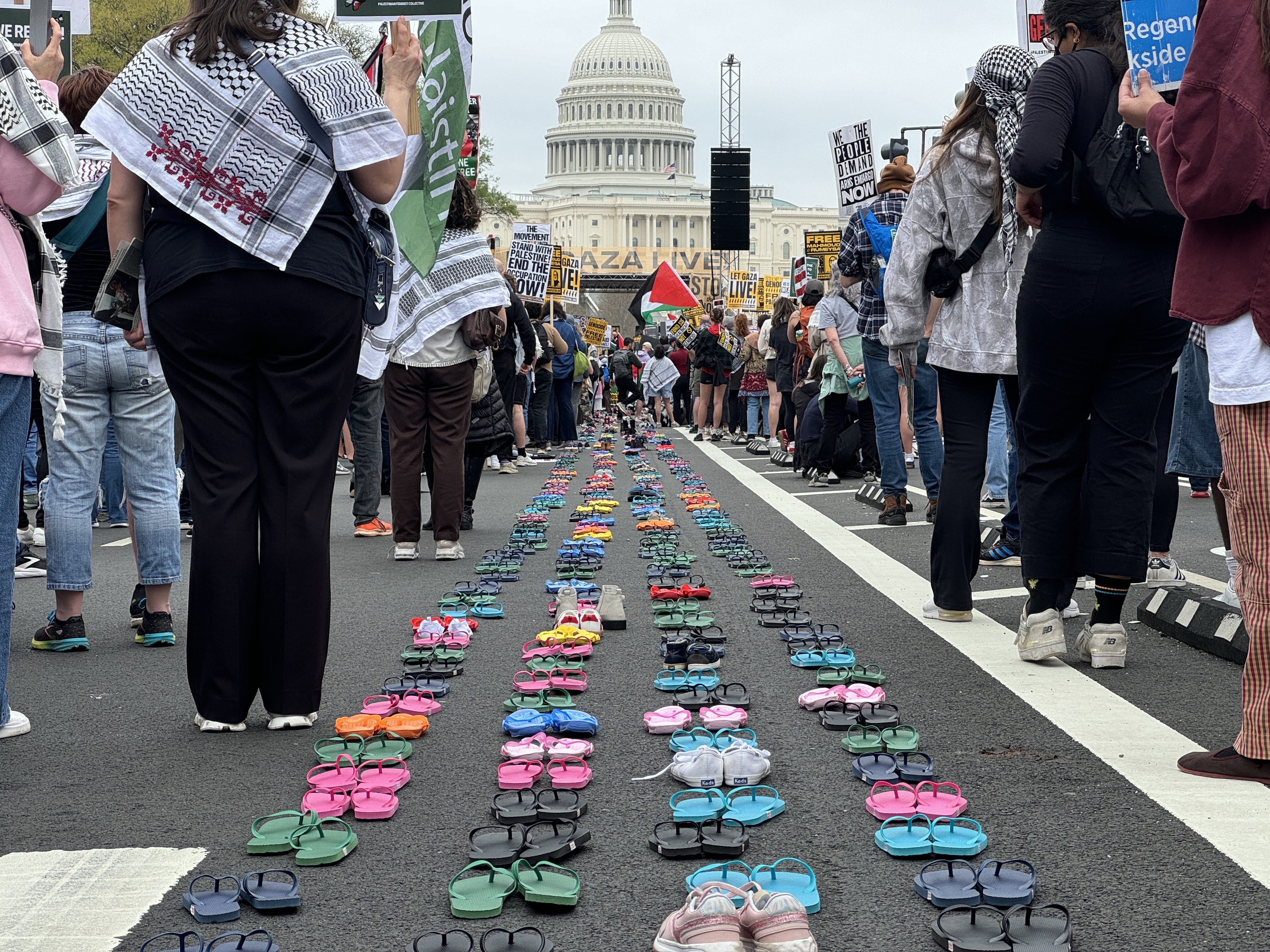A US federal judge has requested additional evidence in the case of Turkish student Rumeysa Ozturk, who was kidnapped and detained in March by Department of Homeland Security (DHS) agents.
The judge also postponed on Monday a decision on her potential release on bail.
US District Judge William K. Sessions III, presiding over the case in Burlington, Vermont, said he must first determine whether he has jurisdiction to rule on Ozturk's petition before considering her request for release on bail.
According to court filings, her student visa had been quietly revoked four days prior without advance notice. Her attorneys say she was offered no explanation at the time of the arrest.
During a phone conference with lawyers on Monday, Sessions stressed that if the court lacks jurisdiction — as the government argues — then it "has no power, no authority" to rule on the matter.
He gave both parties until 5 pm Thursday to submit legal briefs addressing jurisdiction and bail and scheduled a follow-up hearing for April 14.

Loggerheads
Ozturk's attorney, Ramzi Kassem, urged the judge to release her immediately so she could resume her studies, arguing that the court has the authority to grant her release and that she poses no risk to the public or of escape.
Assistant US Attorney Michael Drescher reiterated that "jurisdiction is absolutely the threshold question" that must be resolved first.
The government contends that the Ozturk case belongs in immigration court and that federal district courts do not have jurisdiction over the issues she raised, including the revocation of her visa and her deportation order.
Ozturk was initially held overnight in Vermont after her arrest and flown to Louisiana the following day. Her friends, attorneys and the Turkish consulate were not informed about her location for over 24 hours, during which she reportedly suffered an asthma attack, her lawyers said.
A federal judge in Boston, where Ozturk's legal team filed an emergency petition on the night of her arrest, later ruled that the case should proceed in Vermont, citing that Ozturk was still in that state at the time of filing.
Judge Sessions said on Monday that the case presented unusual circumstances and requested that both parties gather and submit additional evidence.
US Secretary of State Marco Rubio previously confirmed that Ozturk's student F-1 visa had been revoked and defended her detention. Authorities claim she engaged in activities supporting the Palestinian group Hamas without providing any evidence.
A viral video captured the moments of her detention, showing masked DHS agents handcuffing her and forcibly taking away her phone.
Ozturk's lawyers and supporters argue that she was detained for co-writing an op-ed in The Tufts Daily in March 2024 that criticised the university's handling of the pro-Palestinian movement.

Crackdown
Ozturk's case is one of a growing list that targets pro-Palestine students criticising Israel's genocide in the blockaded enclave.
On March 8, authorities arrested Mahmoud Khalil, who led the pro-Palestine protests at Columbia University last Spring. Trump hailed his arrest and said it was the "first of many."
Trump, without evidence, accused Khalil of supporting Hamas. Khalil denies links to the resistance group.
A few days after Khalil's arrest, Trump's claim came due after another pro-Palestine student, Badar Khan Suri, an Indian researcher at Georgetown University, was arrested. His attorney said he was arrested because of the Palestinian identity of his wife.
After the arrest of Suri, authorities went after another pro-Palestine student, Momodou Taal, asking him to turn himself in.
On March 25, Yunseo Chung, a Columbia University student, said she sued the Trump administration to stop her deportation from the US over her participation in a pro-Palestine protest last Spring.
Other students, like Leqaa Kordia, Ranjani Srinivasan, and Alireza Doroudi have either been detained or self-deported.
Trump also targeted US universities for allowing pro-Palestine protests on their campus.
He started with Columbia, which ignited a wave of pro-Palestine protests across US campuses, cancelling $400 million in federal funding to the university.
The university ultimately yielded to his pressure, announcing sweeping policy changes, including campus protest policies.
He then targeted Harvard, launching a review of alleged anti-Semitism and threatened to withdraw $9 billion in federal funding from the university.
The move came after the university dismissed the leaders of the Center for Middle Eastern Studies in an attempt to distance itself from pro-Palestine voices and allegations of bias.



















